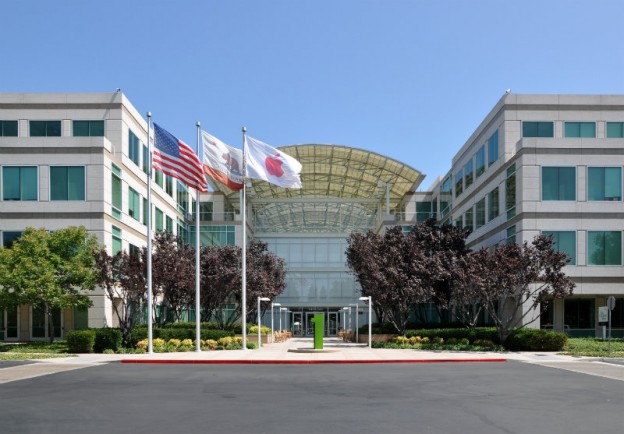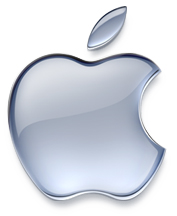
Opinion, Special Education  Did the people at Apple know they were changing the dynamics of special education when they created the iPad?
I don't know for sure. I want to think that someone in the organization had this kind of application in mind - maybe a parent, a sibling or family member of someone with disabilities. In fact, I'm hopeful they did, as this would give some credibility to my view that siblings of people with disabilities will change the way the world experiences and views our special loved ones, which I wrote about for the Friendship Circle Blog a few months back.
Did the people at Apple know they were changing the dynamics of special education when they created the iPad?
I don't know for sure. I want to think that someone in the organization had this kind of application in mind - maybe a parent, a sibling or family member of someone with disabilities. In fact, I'm hopeful they did, as this would give some credibility to my view that siblings of people with disabilities will change the way the world experiences and views our special loved ones, which I wrote about for the Friendship Circle Blog a few months back.
What corporations should learn from Apple's special needs business model
 Did the people at Apple know they were changing the dynamics of special education when they created the iPad?
I don't know for sure. I want to think that someone in the organization had this kind of application in mind - maybe a parent, a sibling or family member of someone with disabilities. In fact, I'm hopeful they did, as this would give some credibility to my view that siblings of people with disabilities will change the way the world experiences and views our special loved ones, which I wrote about for the Friendship Circle Blog a few months back.
Did the people at Apple know they were changing the dynamics of special education when they created the iPad?
I don't know for sure. I want to think that someone in the organization had this kind of application in mind - maybe a parent, a sibling or family member of someone with disabilities. In fact, I'm hopeful they did, as this would give some credibility to my view that siblings of people with disabilities will change the way the world experiences and views our special loved ones, which I wrote about for the Friendship Circle Blog a few months back.
Opportunities for inclusion
I can tell you this, based on my research, the opportunities for inclusion for the disabled that will be birthed from this technological masterpiece will be incredible, as confirmed by the number of pages related to this topic in a recent Google Search. I stopped at page five of my search, but recommend that you take a look at what is happening in the world of uPad applications for people with a host of learning, speech, hearing and other delays. It is very exciting! Now there are quite a few bloggers writing about iPads and all the possibilities (and realities for that matter) for people with disabilities, but what I want to focus on is Apple, the creator of the iPad, and the role that corporations could play in the advancement of people with disabilities in the future, and why product aside, this is about the best news the disability community has had in a long time.Why businesses shun the special needs community
The truth is, even though we are the largest minority group in the United States (20% and most likely higher after the 2010 census report), the disability community is routinely shunned by businesses - both for products and services. Their thinking? If the product can't be reimbursed by Medicaid or private insurance, we won't be interested.Why they shouldn't
The iPad has allowed Apple to show the rest of the for-profit community that the disability sector is a viable and vibrant market. Families are shelling out the five hundred or so dollars for this little technological gem and not batting an eye at its cost because it shows such incredible potential for their loved ones. For the first time in my memory, the business world is seeing that the free market system is working very well in the disability market sector, and that if you build something which is desired and needed - people will buy it - even if they don't have insurance to pay for it. Our community is faced with some really serious issues today, because there are too many people in the system and the government cannot keep up with demand. But what are we to do? We can't expect families to step away from government supports when they have no alternatives. Apple has demonstrated to other corporations that the private sector can jump in and bring a good product at a reasonable price to the consumer with disabilities, and in the process bring in competition to further lower prices and increase product quality.Should the government be involved?
My fear? That somehow this will all get gobbled up by government agencies and the Department of Education. I'm already beginning to see the rumblings of requiring schools to provide iPads at no cost to families and parents fighting for them in Case Conferences. As an appointee to three Governors in the State of Indiana, the last thing we want to happen is for the government to somehow take this all over. I'll use my middle daughter as an example. She gets a school-provided laptop at the beginning of every year. To say it is low quality is an understatement. It's functionality is archaic at best and I question if it enhances my daughter's educational experience in any way. I do know it causes quite a bit of frustration though. Because of Apple's unexpected success with the iPads and disabilities, plan on other companies getting in line to provide an even better product for computer-assisted learning in special education. And when this happens, the prices will go down. In this scenario, we all win, as jobs are created, schools take advantage of technology and freed up resources, and families are able to afford the products to help their loved ones with disabilities be more successful. I believe that technology will be the great equalizer in the 21st century for people with disabilities; the iPad is just the start. What we don't want to do is hinder innovation by making it more difficult for corporations to make a profit. This is one area where families need to step in and engage the market and be willing to reward them for their innovation with their pocketbooks. Are you willing to reward businesses which engage our community? I am because I think our future depends on it!Top Photo Credit: Wikipedia



